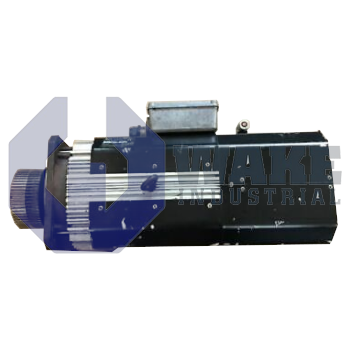Product Description
The MAD100D-0150-SA-S2-AQ0-05-N1, part of Bosch Rexroth's esteemed MAD series, stands out as a powerful and reliable motor designed for industrial applications. The MAD series, within the IndraDyn A family, features asynchronous motors engineered for versatility and outstanding performance in both main-spindle and servo-drive roles. These motors offer a dependable solution across various industrial sectors, including: Manufacturing and production processes, Advanced printing and packaging, Food processing and packaging machinery, Metal fabrication and shaping equipment, Specialized paper treatment and processing systems, Textile and fiber production machinery. MAD series motors adhere to the stringent IP65 protection standard, ensuring they can withstand harsh conditions such as dust and water ingress to provide low maintenance requirements.
The motor delivers robust performance with a torque of 59 Nm and a current draw of 24.7 A, making it suitable for demanding applications. Operating at a rated speed of 1500 rpm, it generates a substantial rated power output of 9.27 kW. For efficient cooling, this motor features an axial fan blower and is equipped with a single-turn absolute encoder and tachometer for position and speed feedback. It offers both flange and foot mounting options, providing flexibility in installation. Notably, this model does not include a holding brake.
Designed to operate within a temperature range of 0 to 40°C and at an optimal installation height of up to 1000 meters above sea level, the motor ensures reliable performance within these parameters. Operating outside these conditions may affect its specified load factor, potentially reducing efficiency, reliability, and overall performance. In addition to its impressive performance characteristics, the motor is equipped with advanced thermal protection features. The motor includes two KTY84-130 temperature sensors, which monitor the internal temperature and to prevent overheating. This ensures the motor operates within safe thermal limits.
 Wake Industrial Warranty
Wake Industrial Warranty















